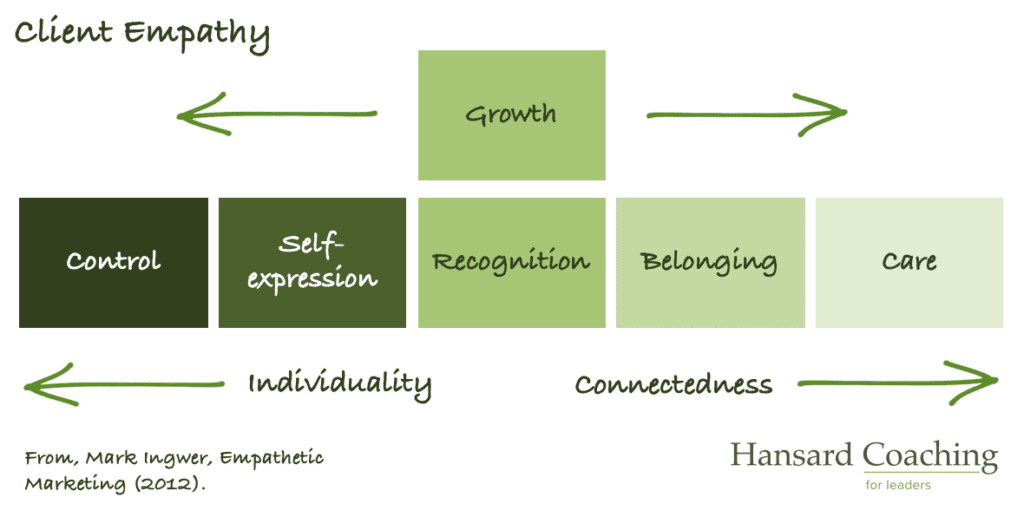
Using client empathy to drive your business forward
I’m convinced empathy is a super power, particularly when it’s unleashed towards clients. But how can this be done in an effective, enduring way?
In his seminal work, Empathetic Marketing, Mark Ingwer breaks down a customer’s needs into 6 emotional elements:
Control – pretty much every client wants to be in the driving seat. They will respond to an advisor or supplier who empowers them and who is motivated to achieve the result they want. So, try to do everything you can to align your motivations with theirs; listen hard, be open about progress, fees and road blocks. Check in once the project has been completed to ensure that the client felt fully engaged in the process. Get this right and you have a much better chance of your clients coming back with repeat work.
Self-expression – often the way in which you deliver your services is just as important as the outcome. Your client having a voice in the “how” can be critical as you are their agent, and so both the process and result need to be a clear reflection of them.
Growth – as all individuals and businesses grow over time you will need to operate and interact with them in a way that leaves room for growth. At its best, your work will be a facilitator of this, so identify their growth ambitions and opportunities early on in your relationship, and be part of enabling what your client really wants to achieve over time.

Recognition – personalise to recognise your client’s true needs and adapt to these needs at every step. Communicate one-on-one, know who they are, understand their motivations and, for exceptional clients offer exceptional support.
Belonging – empathy can be a really useful tool to make your client feel part of your tribe; use it to bring out-groups in, to connect where relevant and to engage them in your work when appropriate. The more they feel comfortable with you the more they will want to work with you.
Care – truly demonstrate that you care, that you value them and their opinions. So, plenty of “thank yous”, commend them and their contributions, and make them notice that you notice them.
The more you really know what your client wants and are able to demonstrate that you do, the closer the bond. Understanding each other’s context facilitates a much more effective working relationship. Operating empathetically with a client is the best chance you have for them to demonstrate empathy towards you.